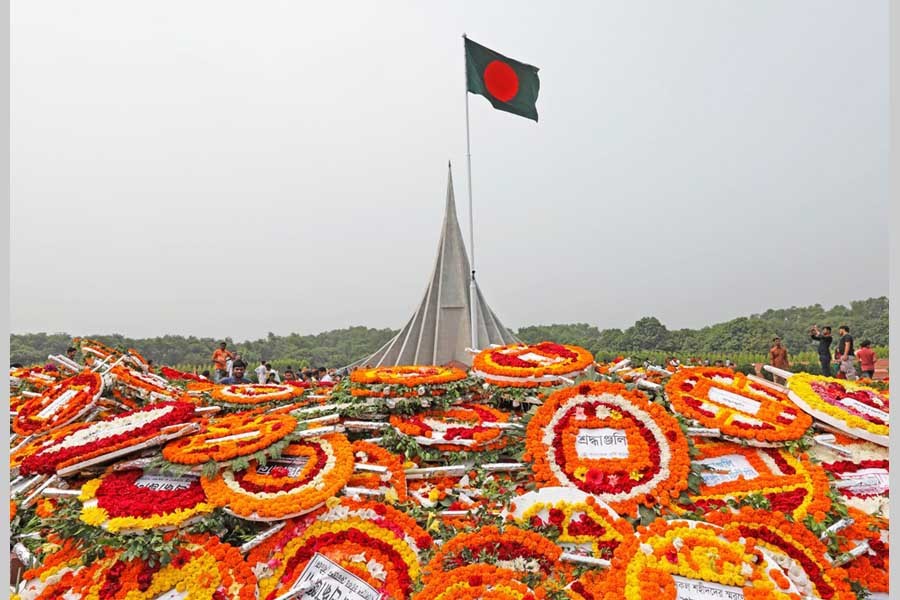The making of a nation is a wonderful event in the annals of history, for it takes human civilisation a few steps ahead. The birth of Bangladesh is no exception to this process of civilisation's progress. With the emergence of a nation on this until-now-known only habitable planet for living beings, civilisation takes a new dimension. Infused with fresh blood, the nation embarks on its particular journey. The hard truth is that Bangladesh had emerged through severe pangs because of the imposition of a war on the unarmed people by the dictatorial Pakistani rulers. On the night of March 25, the Pakistani marauding army was let loose to bring the Bangalees under subjugation. In the throes of a mixed feeling of pain and exultation, the Bangalee people knew they had to respond to the call of duty at that decisive moment. Their supreme leader Sheikh Mujibur Rahman prepared their mindset through his unique March 7 speech at the Suhrawardy Udyan.
For nine months, the Bangalees fought an unequal war and still emerged triumphant. It happened because the occupation army of Pakistan was on the wrong side of the fence. As many as 93,000 Pakistani soldiers surrendered to the joint command of Bangladesh and India. Once again, humanity triumphed over brutality; truth overcame falsehood and the free flowing spirit of liberty had the better of evil spirit intriguing to shackle the soaring mind and spirit. The newly independent nation was devastated by the nine months' war but it was high on spirit. It had to fulfil its dream of establishing socio-economic justice. The challenge was daunting because the financial and material support a nation emerging from ruination needs from the comity of nations was not forthcoming. Still the people waited patiently for better days to come. Just then anti-liberation forces delivered a nefarious blow by staging a military coup and eliminating the architects of the country, including the father of the nation.
Coups and counter-coups destabilised the country's very foundation and for about two decades it had writhed under military rule. The revival of democratically elected governments saw several phases of ups and downs. What is remarkable, though, is the socio-economic progress made by the country notwithstanding the hiccups and reversals suffered. Even the natural calamities, on the count of which Bangladesh has the dubious distinction of becoming second globally, could not deter it from the course of attaining better positions in several social indices compared to its neighbours. The nation is now knocking at the door of the league of lower middle-income countries. Its socio-economic achievements have been impressive.
However, the country is yet to realise the dreams of the millions of martyrs and the founding father. Socio-economic disparities are widening to put a stain on the manner of wealth creation. This is the country that now boasts the highest rate of production of the superrich while at the bottom rung of society, the poor eke out a miserable existence. Governance is wanting, democratic values are undercut and corruption is eating into the vitals of society.
The overarching realisation though is that the spirit of independence has been revived and now the challenge is to strengthen rule of law, create an equal opportunities society and bring about egalitarian system of wealth distribution.


